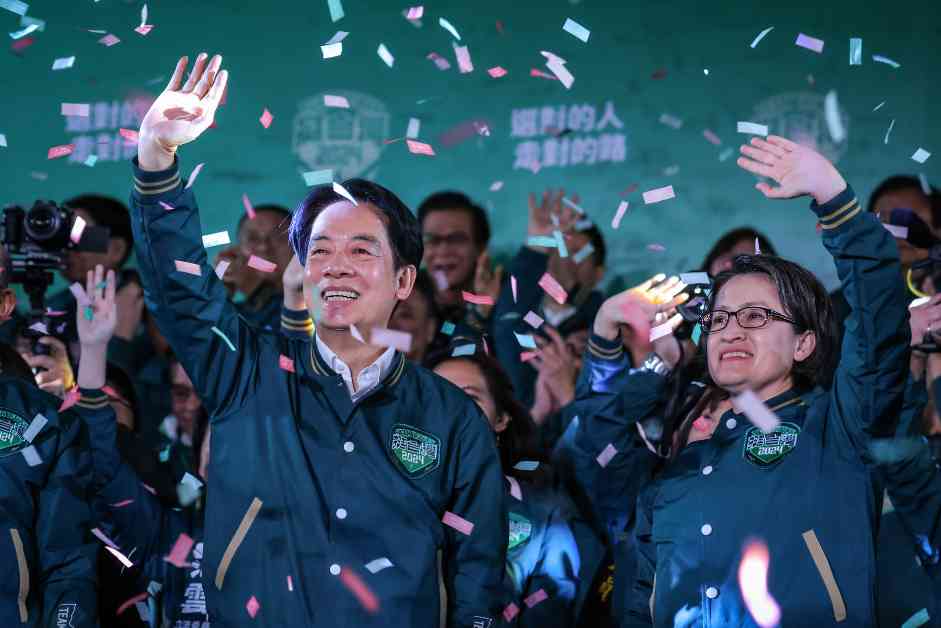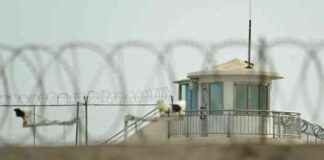# Navigating Post-Election Challenges in Taiwan
The atmosphere was electrifying as confetti filled the air over the stage and crowd at the Democratic Progressive Party headquarters in Taipei, Taiwan. Vice President Lai Ching-te, now President-elect, stood alongside his running mate Hsiao Bi-khim, addressing their jubilant supporters on January 13, 2024. The hard-fought race had culminated in a victory for Lai, despite clear opposition from Beijing. Lai’s stance on Taiwan’s sovereignty has been a focal point, with his commitment to maintaining the status quo with China while asserting that independence is already a de facto reality. As Taiwan prepares for the challenges ahead, the role of Taipei, Washington, and the international community in navigating its relationship with China becomes crucial.
## The Complex Landscape of Cross-Strait Relations
Taiwan’s complex relationship with China has been a defining factor in its political landscape for decades. The One-China policy, which Beijing insists upon, asserts that Taiwan is a part of China and must eventually reunify with the mainland. However, Taiwan’s vibrant democracy and distinct identity have fueled a strong desire for autonomy and self-determination among its people. President-elect Lai’s victory signals a continued commitment to defending Taiwan’s sovereignty while seeking to maintain stability in the region.
The issue of Taiwan’s independence is a delicate balancing act. While many Taiwanese support the idea of formal independence, the reality of China’s military and economic power looms large. Any move towards declaring independence could provoke a strong response from Beijing, leading to heightened tensions and potentially destabilizing the region. President-elect Lai’s emphasis on the status quo reflects a pragmatic approach to managing Taiwan’s relationship with China while safeguarding its interests.
## The Role of Washington in Taiwan’s Post-Election Landscape
The United States has long been a key player in the Taiwan-China dynamic, providing crucial support to Taiwan’s defense capabilities through arms sales and diplomatic backing. President-elect Lai’s administration will look to Washington for continued support in navigating the challenges posed by China’s assertive stance. The Biden administration’s commitment to upholding the Taiwan Relations Act and the Six Assurances underscores the enduring partnership between the two countries.
Washington’s role in the Taiwan-China relationship is multifaceted. On one hand, the U.S. seeks to uphold Taiwan’s security and autonomy in the face of Chinese pressure. On the other hand, it must tread carefully to avoid escalating tensions with Beijing. The delicate balancing act requires strategic diplomacy and a nuanced understanding of the region’s complexities. President-elect Lai’s administration will need to work closely with Washington to ensure a coordinated approach to managing cross-strait relations.
## Navigating Post-Election Challenges: A Path Forward for Taiwan
As President-elect Lai prepares to assume office, the road ahead is fraught with challenges and opportunities. Navigating Taiwan’s relationship with China requires a delicate balance of firmness and pragmatism. President-elect Lai’s commitment to defending Taiwan’s sovereignty while advocating for stability in the region sets the stage for a nuanced approach to cross-strait relations.
Taiwan must also engage with the international community to garner support for its position. Strengthening ties with like-minded partners who share a commitment to democratic values and the rule of law will bolster Taiwan’s standing on the global stage. Building alliances based on shared interests and mutual respect will be essential in navigating the complexities of the Taiwan-China relationship.
In conclusion, President-elect Lai’s victory marks a new chapter in Taiwan’s political landscape. As Taiwan prepares to navigate the challenges posed by China’s assertive stance, the role of Taipei, Washington, and the international community in supporting Taiwan’s sovereignty and security becomes paramount. By adopting a strategic and pragmatic approach to cross-strait relations, President-elect Lai’s administration can chart a path forward that upholds Taiwan’s interests while safeguarding regional stability.

















